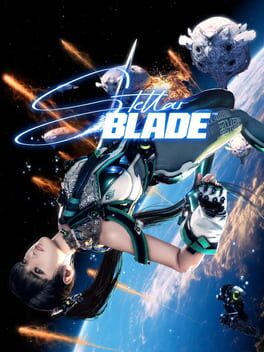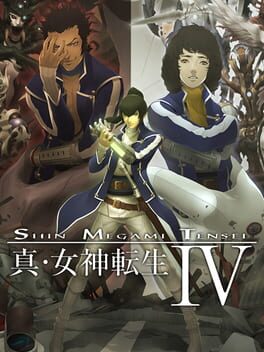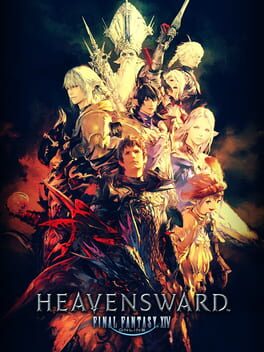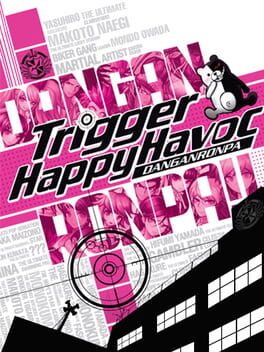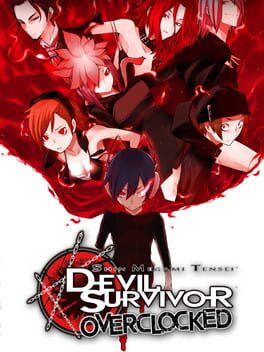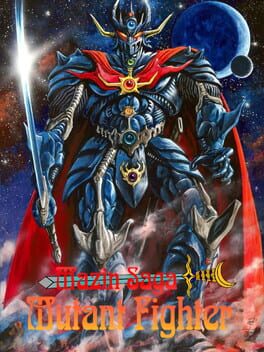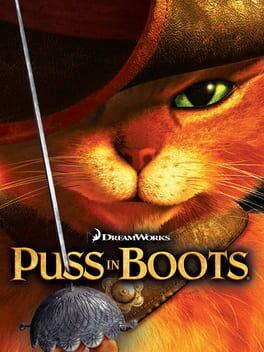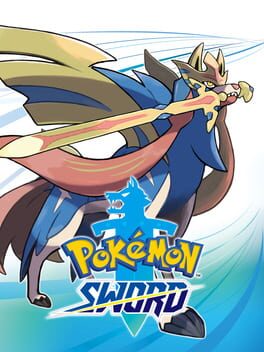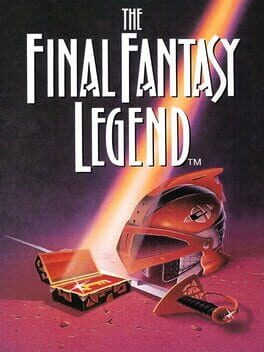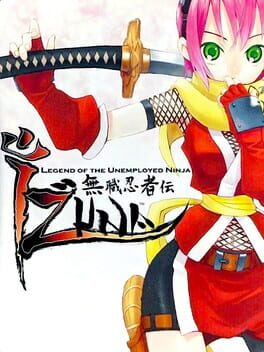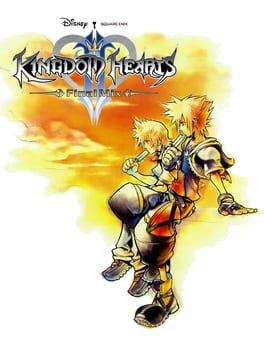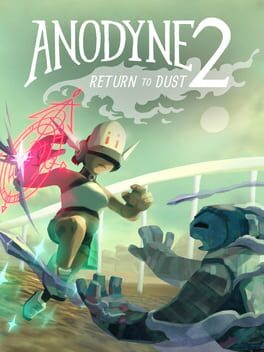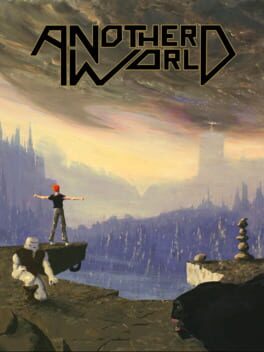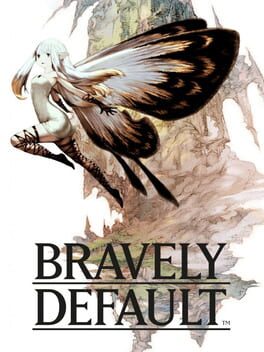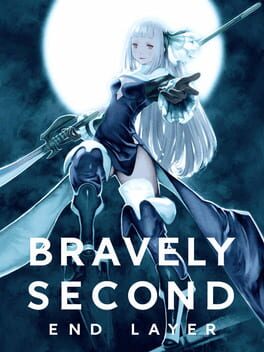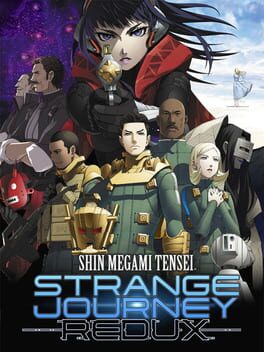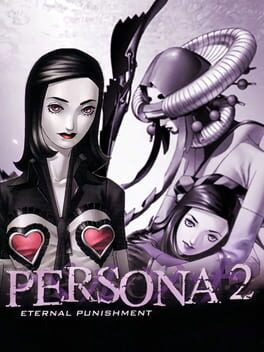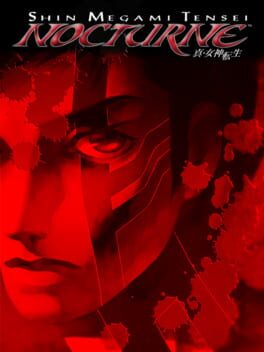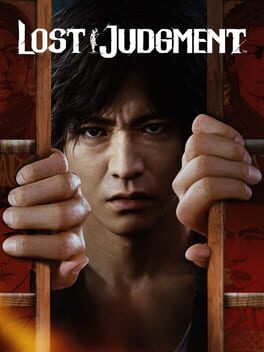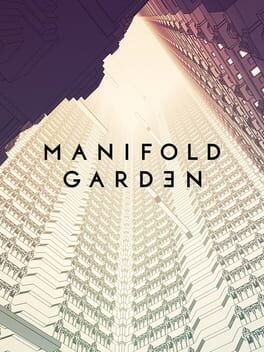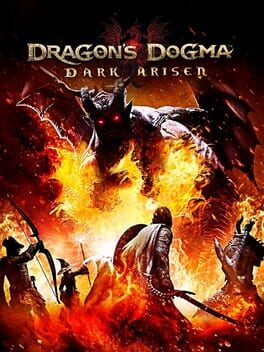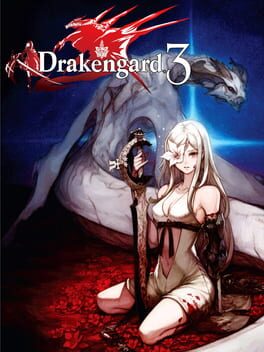saintssoul
76 reviews liked by saintssoul
Stellar Blade
2024
Drakengard
2003
Drakengard is one of the most interesting games I have ever played. At its first glance and in its opening hours, it seems like the standard RPG affair, and it's not until after the first of the games 5 endings did the gears start turning in my head. Drakengard’s thesis statement might as well be to subvert the players expectations at every turn after that first ending, and it's honestly one of the most ethereal gaming experiences I have ever witnessed. To be honest, I’m having trouble even formulating all of my thoughts in an even slightly coherent manner, because this game is so fucking good. I think it is inevitable that in a few months I will find anything I say in this review somewhat shallow but that's the beauty of interpretive art like this. I didn't truly understand Evangelion after I first watched it at 15 and I think my Metal Gear Solid 2 review is extremely surface level now but I leave it up as a digital time capsule. Can you tell this review is going to be a lot of yapping?
The game is a deconstruction of RPG and general fantasy tropes in such a brilliant way, at first seeming to give into them. However, as you go on and dig under the surface of these characters and realize their complexities you start to understand and appreciate Drakengard that much more. Caim at first looks the part of your standard pure of heart RPG protagonist, even going mute at the very beginning of the game to mimic this. However, you very quickly realize that Caim is an absolutely bloodthirsty maniac. He is purely fueled by blind rage and bloodlust, yet will still protect his sister because he knows he's supposed to care for her. The game calls you out on this constantly but you must continue the bloodshed in order to press on with the game…
His sister Furiae seems to be your standard pure and innocent “damsel in distress” character, but this presentation of her character early on is almost like a red herring of sorts. Her lack of development is a critique of that archetype in and of itself. She purposefully keeps the less savory parts of her locked away, and it's not until the end that it's revealed more. Her feelings for Caim are just subtly incestuous which serve to drive home the point that despite her surface level appearance as your standard pure damsel in distress, that's really not what she is. Every character is like this really, Verdelet constantly accosts Caim for his bloodshed yet he is the one that drives him to action most often and routinely benefits from it. Inuart seems like the standard best friend character but gets consumed by jealousy and a pursuit of power to protect his lover, almost acting like the protagonist of a story that's not his. The greatest thing about the complexities of these characters is that it's never too particularly in your face about it either. I absolutely love how this game urges you to dig deeper into its themes. Other than the deconstructive elements of the plot, I feel like Drakengard is a story about hatred, revenge, the things we lose, the importance of love and what a lack of love can do, and the inherent faults of humans. In endings A B and C, Caim loses those closest to him due to his endless conquest of bloodshed. He ends with less things than he started. Ending A he not only loses Furiae and Inuart, but Angelus as well. Ending B he loses not just the three mentioned but the world is doomed and it seems like whatever battle that comes next won't be one Caim survives. Ending B in particular really brings things full circle for Furiae to me as well. After an entire game where she gets minimal screen time or development, the world is filled with grotesque clones of her that doom the world. She no longer has any love for Inuart or even Caim, after Inuart obsesses over protecting her. In Ending C Caim is forced to kill Angelus with his own two hands, the final price of his senseless killing is killing one who he holds the most dear. In each of these first three endings Caim is explicitly punished for his bloodshed. None of these endings are happy, and when I was playing I thought that surely endings B and C would be happier endings than ending A. However, Drakengard does not feel compelled to do this and each ending gets even more bleak than the last. You could take this as the game just being edgy, but I think to do so would be to blindly deny the game of its narrative qualities. Ending D sees the world caught in a permanently frozen state, but not before Caim dies in the end. It's so bleak and just so ethereal. Ending E is the most out of left field one. Caim and Angelus end up in fucking Shinjuku where they play a rhythm game to beat the final boss before being shot down by two missles from the Japanese defense force. The atmosphere is just so chilling and the imagery of Angelus being impaled on top of Tokyo Tower is one of the coolest things ever. The point I'm really trying to make here though is that every ending ends in varying degrees of misfortune for Caim as a result of his blind rage. Even in D and E where he tries to save the world and do a good deed he is punished with death. In attempting to save the world he also dooms it. Another core theme I find with this game is love. You see this a lot with Manah, who is seemingly manipulated by The Watchers/The Gods into thinking she is loved by them, as she received no love from her own mother and was abused by her. This sends her on a path to creating the apocalyptic scenarios that appear in basically every ending. In the end of ending A, she begs for death from Caim yet neither of them think she deserves such a release. She ends with no one left to give her love, not even The Gods. Inuart constantly tries to look for love from Furiae, completely misunderstanding her at every turn, eventually blaming Caim for his own infidelity and seeking revenge on him. These two themes come together to show that the world is this way because of the faults of mankind. Caim is only a coldblooded killer because of his parents death during the war and the attempted reconstruction of the world is due to the easily manipulated nature of humans especially those that are young and not cared for. In the more abstract, things are this way because of the genre that this story is. There is war, there is untold amounts of bloodshed because this is a fantasy RPG. Caim kills because he needs to level up and continue with the story. Which brings me to the gameplay.
The way people talk about the combat of this game makes it seem like the biggest piece of dogshit ever crafted, but really it's not that bad. The systems present in this game are fine enough and far from what I would call bad. However, the combat in Drakengard IS monotonous, but I think this serves a thematic purpose. You’re not meant to enjoy all the senseless killing, and as I said earlier Caim is punished for the indiscriminate bloodshed. However, this is a video game and you must do what the game says to keep going. You must kill even when you don't want to, to continue the game. It's a commentary on the genre in the sense that in RPGs and most video games in general you are rewarded for bloodshed. You are rewarded for killing senselessly and are never called out on it simply because it's a video game. Drakengard breaks this mold and goes as far to try and make the killing itself unenjoyable. I think it’s a really cool aspect of the game that gets overlooked by some because they simply write the combat off as bad and don't interact with it in a ludonarrative sense. The flying missions are awesome though I cant lie. They do also get a bit grueling at times so the ludonarrative cohesion remains intact but they’re definitely more fun than the ground missions.
The last thing I really want to talk about is the music in this game. Drakengard has the most interesting soundtracks in any game I've ever played. It has the sound of what you would expect from a high fantasy game, except it doesn't. Every song in the game uses samples from famous composers in really interesting ways. From Mozart to Tchaikovsky to Holst, you're bound to recognize some of these composers when you see them in the credits but it's doubtful that you'll actually recognize the songs as they appear in game. The game will often loop the same very short sample over and over to create songs that sound traditionally orchestrated but still have a distinct electronic feel to them. I’ve never heard anything like it— I wouldn't necessarily say that the songs are good in a traditional sense but as far as experimental music goes it's really unique and fun to listen to. The best of these songs is the ending B credits theme, “Growing Wings”. Give it a listen if you'd like to see an example of what I'm talking about.
I think that's about all I have to say about the game at this time. This is a serious contender for one of my favorite games of all time and I implore you to play it if you haven't. This probably isn't the case if you read this spoiler tagged review but the point still stands. This game is a masterpiece
The game is a deconstruction of RPG and general fantasy tropes in such a brilliant way, at first seeming to give into them. However, as you go on and dig under the surface of these characters and realize their complexities you start to understand and appreciate Drakengard that much more. Caim at first looks the part of your standard pure of heart RPG protagonist, even going mute at the very beginning of the game to mimic this. However, you very quickly realize that Caim is an absolutely bloodthirsty maniac. He is purely fueled by blind rage and bloodlust, yet will still protect his sister because he knows he's supposed to care for her. The game calls you out on this constantly but you must continue the bloodshed in order to press on with the game…
His sister Furiae seems to be your standard pure and innocent “damsel in distress” character, but this presentation of her character early on is almost like a red herring of sorts. Her lack of development is a critique of that archetype in and of itself. She purposefully keeps the less savory parts of her locked away, and it's not until the end that it's revealed more. Her feelings for Caim are just subtly incestuous which serve to drive home the point that despite her surface level appearance as your standard pure damsel in distress, that's really not what she is. Every character is like this really, Verdelet constantly accosts Caim for his bloodshed yet he is the one that drives him to action most often and routinely benefits from it. Inuart seems like the standard best friend character but gets consumed by jealousy and a pursuit of power to protect his lover, almost acting like the protagonist of a story that's not his. The greatest thing about the complexities of these characters is that it's never too particularly in your face about it either. I absolutely love how this game urges you to dig deeper into its themes. Other than the deconstructive elements of the plot, I feel like Drakengard is a story about hatred, revenge, the things we lose, the importance of love and what a lack of love can do, and the inherent faults of humans. In endings A B and C, Caim loses those closest to him due to his endless conquest of bloodshed. He ends with less things than he started. Ending A he not only loses Furiae and Inuart, but Angelus as well. Ending B he loses not just the three mentioned but the world is doomed and it seems like whatever battle that comes next won't be one Caim survives. Ending B in particular really brings things full circle for Furiae to me as well. After an entire game where she gets minimal screen time or development, the world is filled with grotesque clones of her that doom the world. She no longer has any love for Inuart or even Caim, after Inuart obsesses over protecting her. In Ending C Caim is forced to kill Angelus with his own two hands, the final price of his senseless killing is killing one who he holds the most dear. In each of these first three endings Caim is explicitly punished for his bloodshed. None of these endings are happy, and when I was playing I thought that surely endings B and C would be happier endings than ending A. However, Drakengard does not feel compelled to do this and each ending gets even more bleak than the last. You could take this as the game just being edgy, but I think to do so would be to blindly deny the game of its narrative qualities. Ending D sees the world caught in a permanently frozen state, but not before Caim dies in the end. It's so bleak and just so ethereal. Ending E is the most out of left field one. Caim and Angelus end up in fucking Shinjuku where they play a rhythm game to beat the final boss before being shot down by two missles from the Japanese defense force. The atmosphere is just so chilling and the imagery of Angelus being impaled on top of Tokyo Tower is one of the coolest things ever. The point I'm really trying to make here though is that every ending ends in varying degrees of misfortune for Caim as a result of his blind rage. Even in D and E where he tries to save the world and do a good deed he is punished with death. In attempting to save the world he also dooms it. Another core theme I find with this game is love. You see this a lot with Manah, who is seemingly manipulated by The Watchers/The Gods into thinking she is loved by them, as she received no love from her own mother and was abused by her. This sends her on a path to creating the apocalyptic scenarios that appear in basically every ending. In the end of ending A, she begs for death from Caim yet neither of them think she deserves such a release. She ends with no one left to give her love, not even The Gods. Inuart constantly tries to look for love from Furiae, completely misunderstanding her at every turn, eventually blaming Caim for his own infidelity and seeking revenge on him. These two themes come together to show that the world is this way because of the faults of mankind. Caim is only a coldblooded killer because of his parents death during the war and the attempted reconstruction of the world is due to the easily manipulated nature of humans especially those that are young and not cared for. In the more abstract, things are this way because of the genre that this story is. There is war, there is untold amounts of bloodshed because this is a fantasy RPG. Caim kills because he needs to level up and continue with the story. Which brings me to the gameplay.
The way people talk about the combat of this game makes it seem like the biggest piece of dogshit ever crafted, but really it's not that bad. The systems present in this game are fine enough and far from what I would call bad. However, the combat in Drakengard IS monotonous, but I think this serves a thematic purpose. You’re not meant to enjoy all the senseless killing, and as I said earlier Caim is punished for the indiscriminate bloodshed. However, this is a video game and you must do what the game says to keep going. You must kill even when you don't want to, to continue the game. It's a commentary on the genre in the sense that in RPGs and most video games in general you are rewarded for bloodshed. You are rewarded for killing senselessly and are never called out on it simply because it's a video game. Drakengard breaks this mold and goes as far to try and make the killing itself unenjoyable. I think it’s a really cool aspect of the game that gets overlooked by some because they simply write the combat off as bad and don't interact with it in a ludonarrative sense. The flying missions are awesome though I cant lie. They do also get a bit grueling at times so the ludonarrative cohesion remains intact but they’re definitely more fun than the ground missions.
The last thing I really want to talk about is the music in this game. Drakengard has the most interesting soundtracks in any game I've ever played. It has the sound of what you would expect from a high fantasy game, except it doesn't. Every song in the game uses samples from famous composers in really interesting ways. From Mozart to Tchaikovsky to Holst, you're bound to recognize some of these composers when you see them in the credits but it's doubtful that you'll actually recognize the songs as they appear in game. The game will often loop the same very short sample over and over to create songs that sound traditionally orchestrated but still have a distinct electronic feel to them. I’ve never heard anything like it— I wouldn't necessarily say that the songs are good in a traditional sense but as far as experimental music goes it's really unique and fun to listen to. The best of these songs is the ending B credits theme, “Growing Wings”. Give it a listen if you'd like to see an example of what I'm talking about.
I think that's about all I have to say about the game at this time. This is a serious contender for one of my favorite games of all time and I implore you to play it if you haven't. This probably isn't the case if you read this spoiler tagged review but the point still stands. This game is a masterpiece
Shin Megami Tensei IV has got to be one of the best games I’ve ever played. The atmosphere, gameplay, story and aesthetics are some of the best in any RPG.
Story? Don’t get me started. Amazing. There’s very few games where after I beat them I’m sitting in my room contemplating what I’ve just played. A really captivating story and one of the best in Megaten.
Gameplay is amazing too. It’s lightning fast and endlessly satisfying with the press turn combat and unique demon mechanics. Fusing demons is fun and rewarding, and using their skills on your main character adds more planning into your fusion process, as you consider which skills you want to transfer. The bane on this game’s gameplay is the dungeon crawling and smirking. The dungeon crawling is mostly nonexistent with only 4-5 real dungeons in the game. The dungeons you do get are pretty good, but often lacking in good loot and side routes to flesh them out. And smirking is just bullshit.
The graphics are pretty good for a 3DS game, though if they went with their original idea of making it a first person dungeon crawler it’d probably look better, but make the game far less as unique as it is.
The music is stupendous. Nothing else I have to say other than it’s ABSOLUTELY BEAUTIFUL. There’s really nothing that compares except the Shin Megami Tensei V OST, done by the same people.
Overall, fantastic game that I will play again and again and never get tired of.
Story? Don’t get me started. Amazing. There’s very few games where after I beat them I’m sitting in my room contemplating what I’ve just played. A really captivating story and one of the best in Megaten.
Gameplay is amazing too. It’s lightning fast and endlessly satisfying with the press turn combat and unique demon mechanics. Fusing demons is fun and rewarding, and using their skills on your main character adds more planning into your fusion process, as you consider which skills you want to transfer. The bane on this game’s gameplay is the dungeon crawling and smirking. The dungeon crawling is mostly nonexistent with only 4-5 real dungeons in the game. The dungeons you do get are pretty good, but often lacking in good loot and side routes to flesh them out. And smirking is just bullshit.
The graphics are pretty good for a 3DS game, though if they went with their original idea of making it a first person dungeon crawler it’d probably look better, but make the game far less as unique as it is.
The music is stupendous. Nothing else I have to say other than it’s ABSOLUTELY BEAUTIFUL. There’s really nothing that compares except the Shin Megami Tensei V OST, done by the same people.
Overall, fantastic game that I will play again and again and never get tired of.
Hi-Fi Rush
2023
“No Promises Await at Journey’s End”
Final Fantasy VII Rebirth is a fantastic game that not only moves forward from its predecessor of Remake, but expands on both that game and the original FF7 in ways that I had never expected, yet have still welcomed all the same and I’m glad to have went through the world of Gaia in an all new light.
I have a very strong connection with FF7 that has followed me for a long period of my life and Rebirth has further capitalised on this, from the care and thought given into
each region you explore with the party, with each of these said regions being accompanied by a plethora of side-quests that do a lot to build upon the relationships certain party members have with one another- a favourite feature of mine as someone who dearly loves the cast of FF7. As well as this, the expansions/changes integrated into the main story (most evident in areas such as Gongaga and Costa Del Sol), the new and improved upon mini-games (Queen’s Blood >>>) and most specifically the party bonding system are all things that Rebirth had blown all of my expectations out of the water with.
As for story content, I will not give an in-depth overview or analysis but more so discuss the emotions I felt throughout it, and all I can say is- wow. Rebirth covers some of the favourite story beats from the original FF7 and I can gladly say that said story beats are done in such a way in Rebirth that there were certain story areas that had me feeling left with a hole in my stomach, a smile on my face or just left in tears, and I couldn’t have asked for a better adaptation of these events.
Talking about characters now, I have and will always adore the cast of FF7 and has I’ve said countless times already in this review- I LOVE THE EXPANSIONS/CHANGES MADE WITH THE MAIN CAST SPECIFICALLY! A character like Yuffie- who I didn’t care for in OG FF7, is now a fan favourite of mine thanks to Intermission and Rebirth. Along with this, some stand-out characters of mine throughout Rebirth were primarily Barret, Tifa and Aerith- all characters that I think predominantly shined throughout Rebirth’s story and its side content- and the most important character of all to me in Rebirth was Zack.
I really loved Zack in Crisis Core, and all the way through the wait to Rebirth I was anticipating his role in the story and the fact we would be getting new content regarding him, and all I can say is that I am not disappointed in any right. He stays true to the character we met in Crisis Core and has his own standout moments that feel like a tribute to those who had played the prequel game, and all I can really say to people who haven’t experienced Crisis Core is really just to play it…it’s amazing…
Focusing again on the story, and more particularly the ending portion of this game from the Forgotten Captial onwards- it’s also one of my favourite final acts I’ve ever been through in any game I’ve played, there’s only so few things that have made me feel the flurry of emotions I experienced in those final chapters of the game and everything I had ever wanted out of this remake trilogy and much more and been fully catered towards in the finale.
This game was a one of a kind experience which reminded me why I love the story and world of FF7 an extreme amount, this entire compilation from the OG to the remake trilogy is so special to me, and I am both excited and nervous to venture into the final part of this reimagined story whenever it is ready.
Thank you Nomura, Kitase, Hamaguchi and Nojima.
Final Fantasy VII Rebirth is a fantastic game that not only moves forward from its predecessor of Remake, but expands on both that game and the original FF7 in ways that I had never expected, yet have still welcomed all the same and I’m glad to have went through the world of Gaia in an all new light.
I have a very strong connection with FF7 that has followed me for a long period of my life and Rebirth has further capitalised on this, from the care and thought given into
each region you explore with the party, with each of these said regions being accompanied by a plethora of side-quests that do a lot to build upon the relationships certain party members have with one another- a favourite feature of mine as someone who dearly loves the cast of FF7. As well as this, the expansions/changes integrated into the main story (most evident in areas such as Gongaga and Costa Del Sol), the new and improved upon mini-games (Queen’s Blood >>>) and most specifically the party bonding system are all things that Rebirth had blown all of my expectations out of the water with.
As for story content, I will not give an in-depth overview or analysis but more so discuss the emotions I felt throughout it, and all I can say is- wow. Rebirth covers some of the favourite story beats from the original FF7 and I can gladly say that said story beats are done in such a way in Rebirth that there were certain story areas that had me feeling left with a hole in my stomach, a smile on my face or just left in tears, and I couldn’t have asked for a better adaptation of these events.
Talking about characters now, I have and will always adore the cast of FF7 and has I’ve said countless times already in this review- I LOVE THE EXPANSIONS/CHANGES MADE WITH THE MAIN CAST SPECIFICALLY! A character like Yuffie- who I didn’t care for in OG FF7, is now a fan favourite of mine thanks to Intermission and Rebirth. Along with this, some stand-out characters of mine throughout Rebirth were primarily Barret, Tifa and Aerith- all characters that I think predominantly shined throughout Rebirth’s story and its side content- and the most important character of all to me in Rebirth was Zack.
I really loved Zack in Crisis Core, and all the way through the wait to Rebirth I was anticipating his role in the story and the fact we would be getting new content regarding him, and all I can say is that I am not disappointed in any right. He stays true to the character we met in Crisis Core and has his own standout moments that feel like a tribute to those who had played the prequel game, and all I can really say to people who haven’t experienced Crisis Core is really just to play it…it’s amazing…
Focusing again on the story, and more particularly the ending portion of this game from the Forgotten Captial onwards- it’s also one of my favourite final acts I’ve ever been through in any game I’ve played, there’s only so few things that have made me feel the flurry of emotions I experienced in those final chapters of the game and everything I had ever wanted out of this remake trilogy and much more and been fully catered towards in the finale.
This game was a one of a kind experience which reminded me why I love the story and world of FF7 an extreme amount, this entire compilation from the OG to the remake trilogy is so special to me, and I am both excited and nervous to venture into the final part of this reimagined story whenever it is ready.
Thank you Nomura, Kitase, Hamaguchi and Nojima.
Persona 4 Golden
2012
There are little to no things that resonate with me as much as Persona 4 does, when i first played it back in 2021, in the middle of the pandemic, attending only to online classes, and my only social circle being online friends, there was no better game than Persona to play.
My experience with the franchise up to that point was only having finished Persona 3 and 5, so coming of off those games to this one was a bit weird, i wasn't used to Persona taking place in small cities, where everyone has at least a small connection to each other, to me, Persona was about living a student life on big japanese metropolises and getting to know people and make friends there, but P4 is different, the setting has a completely different vibe, and one that i vastly prefer, Inaba is a cozy, run of the mill japanese countryside town, and 30 minutes after you arrive you're already making friends and getting the gist of the place, because as i said, it isn't a big touristic town, so a person from somewhere else going there is a rare thing, and one that the inhabitants appreciate, and this feeling of being welcome permeates throughout the whole game, this allows the game to make you feel connected to those characters like no other game can, you truly see that the characters really appreciate each other's company, and simply watching them and being there with them is extraordinarily heartwarming and comforting.
Not too long after, you're introduced to the main mystery of Persona 4, the murders, and i must say, it's one of the best things Atlus every wrote, you're at the edge of your seat everytime it comes up, and the resolution is very well done and satisfying.
When i was thrown in on the first dungeon, it was a bit weird, and it's still not an aspect i'm very fan of, the randomized nature made sense in P3, but here, it just feels bland, and it's not like Atlus didn't know how to make good dungeons, heck they had made Nocturne 5 years ago and that game's dungeons are great, but for some reason they decided to go with procedurally generated corridors, don't get me wrong, they're not annoying or boring, just kinda dissapointing, if a P4 Remake ever comes, i'd really like to see them do actual humanly crafted dungeons.
The combat here is a major evolution from P3 FES, now you have control of all party members again, and while the game remains much easier than mainline SMT, it's not braindead and some bosses took me some thought to beat, i feel like the combat could have a bit more spice, but it's fine as it is.
Now we get to a point which is at the same time of the greatest qualities and perhaps the greatest flaw of P4, the message, it can be summarized as "accept your true self", which means acknowledge that both your flaws and qualities are part of who you are, and that you shouldn't ostracize your weaknesses, but accept them and become a better person each day, and while i think that the theme is well executed for the most part, some character's conclusions seem to work against it? I don't want to get into spoilers, but those who played it know what i'm talking about.
Overall, Persona 4 is a game that came to me at the right place, right time, and probably, it's the game i enjoyed playing the most, that's why i have it listed at number one, i could write much more, but for now, i think i managed to get across what i felt.
My experience with the franchise up to that point was only having finished Persona 3 and 5, so coming of off those games to this one was a bit weird, i wasn't used to Persona taking place in small cities, where everyone has at least a small connection to each other, to me, Persona was about living a student life on big japanese metropolises and getting to know people and make friends there, but P4 is different, the setting has a completely different vibe, and one that i vastly prefer, Inaba is a cozy, run of the mill japanese countryside town, and 30 minutes after you arrive you're already making friends and getting the gist of the place, because as i said, it isn't a big touristic town, so a person from somewhere else going there is a rare thing, and one that the inhabitants appreciate, and this feeling of being welcome permeates throughout the whole game, this allows the game to make you feel connected to those characters like no other game can, you truly see that the characters really appreciate each other's company, and simply watching them and being there with them is extraordinarily heartwarming and comforting.
Not too long after, you're introduced to the main mystery of Persona 4, the murders, and i must say, it's one of the best things Atlus every wrote, you're at the edge of your seat everytime it comes up, and the resolution is very well done and satisfying.
When i was thrown in on the first dungeon, it was a bit weird, and it's still not an aspect i'm very fan of, the randomized nature made sense in P3, but here, it just feels bland, and it's not like Atlus didn't know how to make good dungeons, heck they had made Nocturne 5 years ago and that game's dungeons are great, but for some reason they decided to go with procedurally generated corridors, don't get me wrong, they're not annoying or boring, just kinda dissapointing, if a P4 Remake ever comes, i'd really like to see them do actual humanly crafted dungeons.
The combat here is a major evolution from P3 FES, now you have control of all party members again, and while the game remains much easier than mainline SMT, it's not braindead and some bosses took me some thought to beat, i feel like the combat could have a bit more spice, but it's fine as it is.
Now we get to a point which is at the same time of the greatest qualities and perhaps the greatest flaw of P4, the message, it can be summarized as "accept your true self", which means acknowledge that both your flaws and qualities are part of who you are, and that you shouldn't ostracize your weaknesses, but accept them and become a better person each day, and while i think that the theme is well executed for the most part, some character's conclusions seem to work against it? I don't want to get into spoilers, but those who played it know what i'm talking about.
Overall, Persona 4 is a game that came to me at the right place, right time, and probably, it's the game i enjoyed playing the most, that's why i have it listed at number one, i could write much more, but for now, i think i managed to get across what i felt.
Incredibly good game, from the countless biblical and demonology references, to what was showed of what humans would do under dire circumstances and the different decisions they would make depending on their background and upbringing, and a few other things as well. Really liked the different endings that were available in the game and gave different perspectives on choices. Though as any Atlus game, it definitely didn't come without its frustrations and struggles, though overall, the gameplay was fine
6 lists liked by saintssoul
by LoreW001 |
2173 Games
by Bells |
64 Games
by InstantRamenKing |
22 Games
by rusbo |
30 Games
by BlazingWaters |
35 Games
